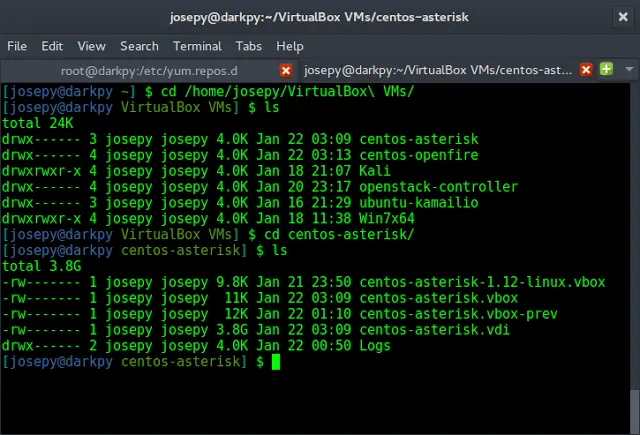Given a singly linked list, find the middle of the linked list. For example, if the given linked list is 1->2->3->4->5 then the output should be 3.
If there are even nodes, then there would be two middle nodes, we need to print the second middle element. For example, if given linked list is 1->2->3->4->5->6 then the output should be 4.
Method 1:
Traverse the whole linked list and count the no. of nodes. Now traverse the list again till count/2 and return the node at count/2.
Method 2:
Traverse linked list using two pointers. Move one pointer by one and the other pointers by two. When the fast pointer reaches the end slow pointer will reach the middle of the linked list.
Below image shows how printMiddle function works in the code :
Javascript
<script>// JavaScript program to find // middle of linked list// Head of linked listvar head; // Linked list node class Node { constructor(val) { this.data = val; this.next = null; }}// Function to print middle of // linked listfunction printMiddle() { var slow_ptr = head; var fast_ptr = head; if (head != null) { while (fast_ptr != null && fast_ptr.next != null) { fast_ptr = fast_ptr.next.next; slow_ptr = slow_ptr.next; } document.write("The middle element is [" + slow_ptr.data + "] <br/><br/>"); }}// Inserts a new Node at front of the list.function push(new_data) { /* 1 & 2: Allocate the Node & Put in the data */ var new_node = new Node(new_data); // 3. Make next of new Node as head new_node.next = head; // 4. Move the head to point to new Node head = new_node;}// This function prints contents of linked // list starting from the given nodefunction printList() { var tnode = head; while (tnode != null) { document.write(tnode.data + "->"); tnode = tnode.next; } document.write("NULL<br/>");}for (i = 5; i > 0; --i) { push(i); printList(); printMiddle();}// This code is contributed by todaysgaurav</script> |
Output:
5->NULL The middle element is [5] 4->5->NULL The middle element is [5] 3->4->5->NULL The middle element is [4] 2->3->4->5->NULL The middle element is [4] 1->2->3->4->5->NULL The middle element is [3]
Time Complexity: O(n) where n is the number of nodes in the given linked list.
Auxiliary Space: O(1), no extra space is required, so it is a constant.
Method 3:
Initialize mid element as head and initialize a counter as 0. Traverse the list from head, while traversing increment the counter and change mid to mid->next whenever the counter is odd. So the mid will move only half of the total length of the list.
Thanks to Narendra Kangralkar for suggesting this method.
Javascript
<script>// Javascript program to implement// the above approachvar head = null;// Link list nodeclass Node { constructor(next, val) { this.data = val; this.next = next; }}// Function to get the middle of// the linked listfunction printMiddle(head) { var count = 0; var mid = head; while (head != null) { // Update mid, when 'count' // is odd number if ((count % 2) == 1) mid = mid.next; ++count; head = head.next; } // If empty list is provided if (mid != null) document.write("The middle element is [" + mid.data + "]<br/><br/>");}function push(head_ref, new_data) { // Allocate node var new_node = new Node(head_ref, new_data); // Move the head to point to the new node head = new_node; return head;}// A utility function to print// given linked listfunction printList(head) { while (head != null) { document.write(head.data + "-> "); head = head.next; } document.write("null<br/>");}// Driver codefor (i = 5; i > 0; i--) { head = push(head, i); printList(head); printMiddle(head);}// This code contributed by gauravrajput1 </script> |
Output:
5->NULL The middle element is [5] 4->5->NULL The middle element is [5] 3->4->5->NULL The middle element is [4] 2->3->4->5->NULL The middle element is [4] 1->2->3->4->5->NULL The middle element is [3]
Time Complexity: O(n) where n is the number of nodes in the given linked list.
Auxiliary Space: O(1), no extra space is required, so it is a constant.
Please refer complete article on Find the middle of a given linked list for more details!
Ready to dive in? Explore our Free Demo Content and join our DSA course, trusted by over 100,000 neveropen!





